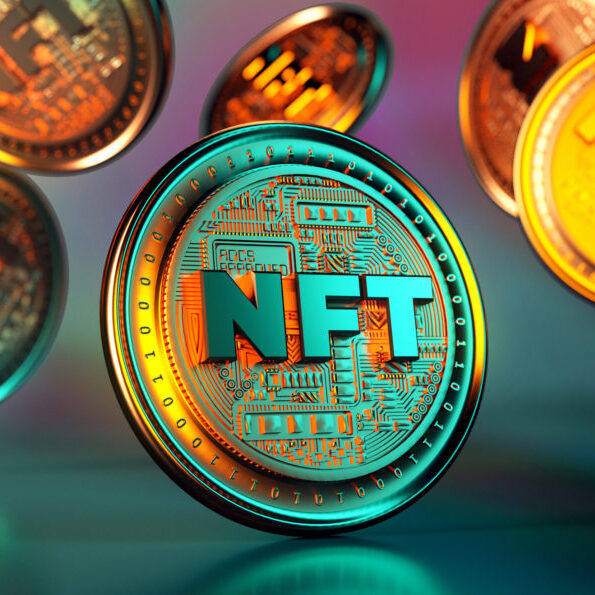Insights < BACK TO ALL INSIGHTS
Four States Coordinate Against Metaverse Casino’s NFT Sales
Four States Coordinate Against Metaverse Casino’s NFT Sales
By: Jake Gray
On Thursday, October 20th, state securities regulators from Alabama, Kentucky, New Jersey, and Texas filed coordinated enforcement actions to stop sales of non-fungible tokens (“NFTs”) by an organization in the country of Georgia. The actions accuse Slotie NFT (“Slotie”) of “illegally and fraudulently selling NFTs to raise capital relating to gaming in online and metaverse casinos” in like manner to the offer and sale of stock and other equities. [1]
The coordinated effort against Slotie seems to be, at the very least, a partial fulfillment of a promise made by Texas State Securities Board Enforcement Director, Joe Rotunda, who told Reuters in April that the regulator has spotted several securities offerings in the “metaverse” and that it was “coordinating among states to investigate the offerings and plan enforcement actions if necessary.” Rotunda’s statement accompanied the issuance of cease-and-desist orders by Alabama, Kentucky, and Texas against an online casino developer for the alleged offering of unregistered securities through NFTs and other violations of securities-related regulations in April. With Thursday’s enforcement action, New Jersey is the most recent addition among state regulators looking to combat the instrumentalization of NFT sales from blockchain-based companies looking to raise funds.
The Facts of Slotie NFTs
As we have written previously, utility NFTs offer holders novel use-cases, like granting them access to certain services, events, and other benefits. In some instances, though, NFT sales look like investment contracts, which are subject to federal and state registration requirements, because they give their holders or purchasers rights commonly associated with ownership like revenue share in order to use them as a fundraising vehicle.
In Slotie’s case, the organization issued 10,000 Slotie NFTs that, according to the cease and desists from the four states, provide ownership interests in the casinos and the right to passively share in the profits of the casinos, among other benefits.
Marketing materials on the Slotie website state that “with Sloties it’s your house, your rules… [and that] the rarer your Slotie, the more rewards it will generate.” More concretely, Slotie holders are granted an “Exclusive Holder Reward” that, depending on the rarity of the NFT’s attributes, give holders power to vote “and decide how the rewards should be managed.” Additionally, Slotie holders can stake their NFT, earn up to 20% rakeback in 150 casinos, participate in a weekly “slottery” for rewards, and earn 10 “WATTs” daily, which in turn have their own utilities. [2] Among WATTs uses are the ability to “breed” Sloties—specifically, NFT holders can “breed” two Sloties (at the cost of 1800 WATTs) to mint a new “Slotie Junior NFT” that purportedly doubles the profits paid to owners of Slotie NFTs and entitles investors to ownership of a plot of land in a metaverse. [3]
Regulator Findings and Statements
The orders found no evidence that Slotie NFTs or Slotie Junior NFTs sold out in under 5 and 2 minutes, respectively, as Slotie initially claimed. Further, the secondary marketplace OpenSea delisted Slotie’s NFT collection in April 2022, at which point purchasers were directed to other secondary marketplaces. Additionally, Slotie has neither identified any partners nor provided any evidence to back the claim that Slotie is partnered “with over 150 casinos worldwide,” according to the order.
Principally, however, the orders allege that Slotie has concealed critical material information from investors, such as its assets, liabilities, revenue and other financial information as well as its anticipated use of capital raised through the sale of NFTs and the financial impact and consequences of failing to raise sufficient capital through such sales. Slotie also failed to disclose the risks associated with the operation of metaverse casinos and the metaverse, according to the orders. Failure to disclose such information leaves investors at risk of losing their money without being properly informed of those risks.
Even if Slotie holders wanted to obtain such material information, there were limited avenues by which they could do so. Slotie failed to provide a physical address or information regarding a physical location (either for the business or any of its members), a telephone number, or even an email address to purchasers. Slotie or its personnel could only be contacted through Slotie NFT Social Media Platforms. [4]
As a result of the orders, Slotie must immediately cease and desist from offering for sale any security until the security is registered with the relevant state regulatory bodies, from acting as a securities dealer until so registered, and from engaging in any fraud in connection with their security offerings. Otherwise, they are subject to a fine of up to $10,000, or imprisonment in the penitentiary for two to ten years, or both. [5]
In response to the order, Slotie took to Twitter on October 24th:
“Recently 4 US States sent an order to Sloties. We are working with our legal team on the situation. Sloties are known for overcoming all challenges which are more to come as the project grows bigger! What matters is our persistence and unity. Thank you for your support!” [6]
Joe Rotunda of the Texas State Securities Board, in a statement to CNBC, warned about potential fraudsters despite the metaverse providing legitimate business opportunities: “the latest metaverse investment products — NFTs that purport to provide passive income — often bear significant undisclosed risks…These risks are often significant, and investing in virtual realities can leave investors virtually broke.” [7]
[1] https://asc.alabama.gov/News/2022%20News/10-20-2022_Fraudulent_NFT_Investment.pdf
[3]https://junior.slotie.com/; https://www.ssb.texas.gov/news-publications/three-state-securities-regulators-file-enforcement-actions-stop-sales-fraudulent
[4] https://www.ssb.texas.gov/sites/default/files/2022-10/ENF_22_CDO_1865_0.pdf
[5] Ibid.
[6] https://twitter.com/SlotieNft/status/1584615753508159490?s=20&t=22KuIld2_UyTdC3pKgOkMw
[7]https://www.cnbc.com/2022/10/20/four-us-states-order-a-metaverse-casino-to-halt-sale-of-nfts.html





